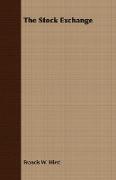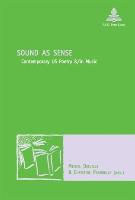The Stock Exchange
BücherAngebote / Angebote:
THE HOME UNIVERSITY LIBRARY OF MODERN KNOWLEDGE THE STOCK EXCHANGE The Stock Exchange A SHORT STUDY OF INVESTMENT.. AND SPECULATION FRANCIS W. HIRST Fourth Edition Geoffrey Cumberlege OXFORD UNIVERSITY PRESS LONDON NEW YORK TORONTO 1948 PREFACE TO THE FOURTH EDITION THIS book, written at the request of my old friend the late H. A. L. Fisher, was first published in 1911. A revised edition followed in 1913, and several impressions were called for between the two Great Wars. Then came the financial and economic blizzard, which started with the Wall Street col lapse in the autumn of 1929. It happened that I was then in the United States, and stayed for a time at the White House with Mr. Herbert C. Hoover, then President of the United States, when the disastrous economic results of a Stock Exchange disaster, which communicated itself to Stock Exchanges and banks in Europe and South America, were beginning to reveal themselves. The ultimate consequences in Great Britain are now ancient history. The Labour Government was replaced by a Coalition Government, and Philip Snowden in his last Budget, by economies and increased taxation, overcame the large deficit, but was unable to save the gold currency. The Bank of England stopped payments in gold and the Government reverted to the managed in convertible paper currency, which had been adopted in 1914, at the beginning of the first World War. There followed a complete reversal of the free trade policy which had been inaugurated by Sir Robert Peel ninety years before. The new system was carried out by the MacDonald Govern ment, with Mr. Neville Chamberlain as Chancellor 6 THE STOCK EXCHANGE of the Exchequer and Mr. Runciman as President of the Board of Trade, in the Import Duties Act, with preferences negotiated at Ottawa for the British Empire in 1932 but gradually though unemployment remained very heavy for several years the financial situation soon became easier our Joint Stock Banks functioned normally, and the London Stock Exchange after a time emerged from most of its difficulties, though its brokers and jobbers, as well as their clients, were hard hit by the failures abroad and the numerous defaults of governments and companies, in which British investors had placed many hundreds of millions. It was far otherwise in the United States. When President Roosevelt took office the American bank ing system, as well as the Stock Exchanges, had ceased to operate. A very large number of banks had been ruined by the speculative mania. These were closed, and a series of measures known as the New Deal was initiated and carried through by President Roosevelt before the United States became involved through Japanese aggression in the second World War. By that time most of our overseas securities had been pawned, and most of our gold had been exported to the United States. But Lend-Lease came to the rescue, and in the summer of this year, 1946, after many months of negotiation, President Truman obtained the sup port of Congress for a large loan, free of interest for five years, which, it is hoped, will enable us to recover our commerce and get free eventually from the controls and restrictions on home markets and prices which were imposed during the War. PREFACE 7 How long it will take before the London and provincial Stock Exchanges are able to play their old part in speculative investment it is impossible to predict. But an objective account of what has happened and of the actual situation in the summer of 1946 has been added in a concluding chapter. After several years discussion a scheme for uni fied control of the London Stock Exchange has been adopted recently. F. W. H. December 1947 PREFACE TO THE THIRD EDITION SINCE this book was first written, the financial world has been shaken to its foundations by the costliest war in human history...
Folgt in ca. 10 Arbeitstagen




